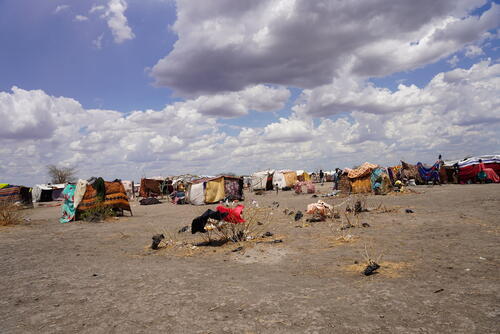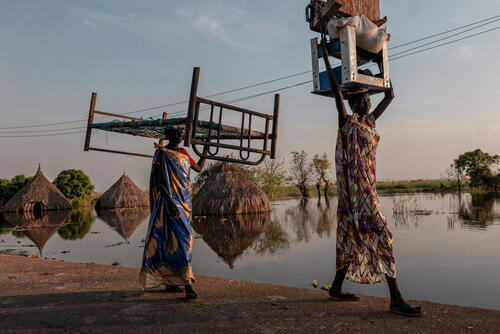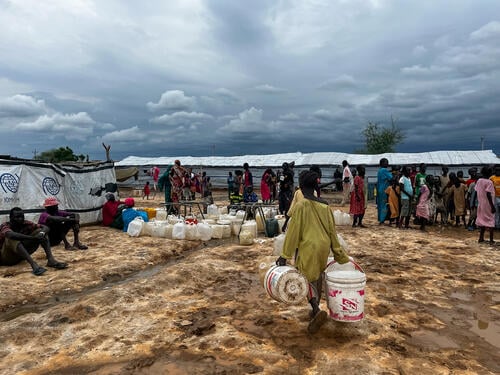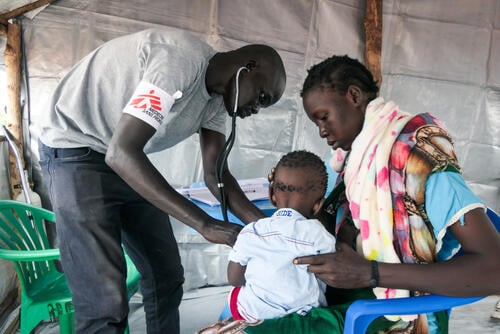- Thousands of people stuck in transit centres in South Sudan could face catastrophic situation with the onset of the rainy season, warns Médecins Sans Frontières (MSF).
- MSF calls on the medical and humanitarian community to launch urgent response to address the mounting needs of people here.
Juba – Thousands of people who escaped the conflict in Sudan by crossing into South Sudan are now struggling for survival at transit centres in Upper Nile and Northern Bahr El Ghazal states, says MSF. Most are South Sudanese nationals who were living in Sudan when the conflict broke out in April, and many are women and children.
Returnees sheltering in and around the transit camps along the border have limited shelter, food and drinking water, and inadequate sanitation. MSF calls on the medical and humanitarian community to launch a coordinated response to address the mounting needs of the people here.
“Upper Nile and Northern Bahr El Ghazal states, in particular, are facing a heavy influx of returnees, and the present humanitarian response is overstretched,” says Jocelyn Yapi, MSF head of mission in South Sudan.
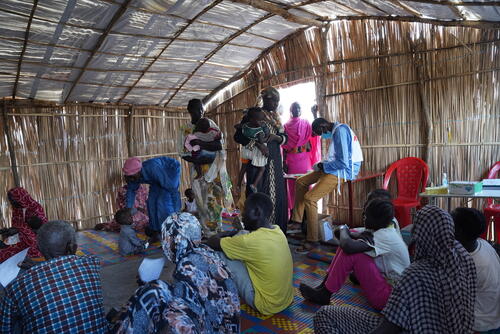
“The displaced people, who are already traumatised, have very limited access to food, shelter, sanitation and other essentials,” says Yapi
“There is an urgent need for the authorities and others to accelerate the process of transferring them to other parts of the country in a dignified way, but to also ensure the provision of basic services for their survival and settlement in South Sudan.”
Poor living conditions in the transit camps are already having a negative impact on people’s health and, with the onset of the rainy season, the situation could become catastrophic.
“Our teams are already treating patients with diseases that could be prevented with better living conditions,” says Yapi. “With the forthcoming rainy season, if these needs are not addressed promptly, we fear disease outbreaks and a health catastrophe that could endanger the lives of thousands.”
With the forthcoming rainy season, if these needs are not addressed promptly, we fear disease outbreaks and a health catastrophe that could endanger the lives of thousands.Jocelyn Yapi, MSF head of mission in South Sudan
Fighting has displaced tens of thousands of people in Sudan since mid-April. More than 127,000 people have sought refuge in South Sudan, mostly in Renk in Upper Nile state. Today, between 800 to 1,000 people cross into Renk each day on donkey carts, often after making long and dangerous journeys to reach the border.
Awel Shoul, accompanied by his sick brother, is one of many people returning to their homeland in search of safety. His brother had been undergoing medical treatment in Sudan and was due to have surgery, but had to leave his treatment unfinished when Khartoum became a battle zone.
“We ran for our lives from Khartoum,” says Awel. “Along the way, we came across armed men who took our money and belongings. Our mobile phones were snatched as well.”
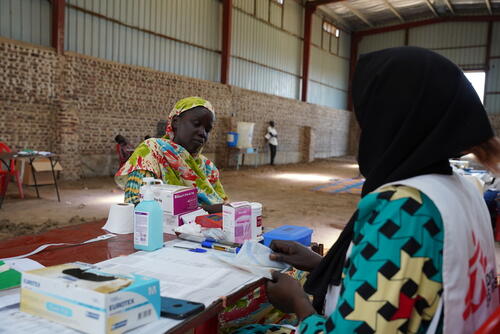
Crossing into South Sudan, most returnees do not realise that another crisis awaits them. In Renk, the main transit centre currently hosts more than 12,000 people, many more than its capacity and available aid. Hundreds of families have set up camp outside the transit centre, shading themselves from the sun with whatever materials they can find.
About a month ago, the transit centre was the scene of intercommunal clashes. Since then, some community members have moved out of the centre in order to maintain the peace. While some aid is available to people in the transit centre, there is no functional response for those outside it.
“We do not have food,” says Anyr Mathok Deng, who is sleeping in a warehouse close to the river in Renk town, after returning to the country following 40 years of living in Sudan. “There is not enough clean water,” he says.
“People don’t want to stay here. They are so desperate to leave that they are ready to sell their clothes and go naked in order to pay for transport,” says Anyr.
We ran for our lives from Khartoum. Along the way, we came across armed men who took our money and belongings.Awel Shoul, returnee searching for safety in South Sudan
Local authorities in Renk had announced a plan to transfer returnees to a second transit centre in Malakal town, which already hosts a camp for displaced people. However, all travel between Renk and Malakal has been suspended after intercommunal violence broke out in the camp earlier in June, leaving at least 17 people dead.
In Aweil, in Northern Bahr El Ghazal state, it is a similar picture. While Sudanese nationals are staying in a refugee transit centre, many South Sudanese returnees are still living under trees without food, clean water or proper sanitation. Humanitarian needs were already high in Northern Bahr El Ghazal state before the current crisis and funding cuts had eroded health services.
“The arrival of returnees and refugees is going to have a huge impact on the humanitarian situation in Northern Bahr El Ghazal state,” says Margot Grelet, MSF project coordinator in Aweil. “We are already seeing an increase in malnutrition cases.”
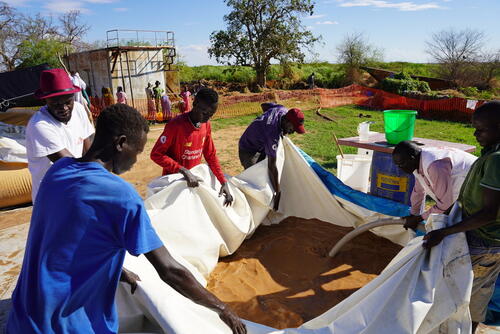
MSF has launched emergency responses in Upper Nile and Northern Bahr El Ghazal states, running three mobile clinics in Renk and one in Aweil. In Renk, our water and sanitation teams are treating river water to provide safe drinking water for displaced people, while medical teams are screening children for malnutrition and have set up a measles isolation ward.
We are also providing referrals for people in need of specialist medical care, as well as mental health support and health education.
“We are treating patients for acute watery diarrhoea, malaria, respiratory tract infections and eye infections,” says Dawai Apayi, an MSF emergency nurse in Renk.
“Open defecation is rampant in the area. The warehouses and temporary shelters are at risk of flooding; once the rains come, they will also be prone to disease outbreaks such as cholera. To prevent this, it is crucial to meet people’s basic needs by providing them with shelter, clean water and hygiene facilities,” says Apayi.
With no end in sight to the conflict in Sudan, more people are expected to cross the border into South Sudan. If the transit process is not speeded up, people’s unmet needs in Aweil and Renk are likely to surge, with potentially catastrophic health consequences.




